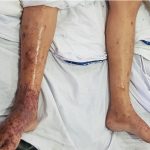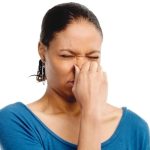Best Medications that Help with Montezuma’s Revenge Symptoms

Traveling to exotic destinations is a thrilling experience, but for many globetrotters, the unwelcome companion known as traveler’s diarrhea, or Montezuma’s Revenge, can cast a shadow over their adventures. Characterized by abdominal discomfort, frequent bowel movements, and sometimes nausea, this condition is often caused by consuming contaminated food or water.
While prevention through cautious eating and drinking is crucial, sometimes the unpredictable nature of travel makes it challenging to avoid Montezuma’s Revenge altogether. In this comprehensive guide, we will explore the best medications available to alleviate symptoms and provide relief for individuals dealing with traveler’s diarrhea.
What is Montezuma’s Revenge?
Traveler’s diarrhea, commonly referred to as Montezuma’s Revenge, is a prevalent ailment that can significantly impact the travel experience. A comprehensive understanding of the causes, symptoms, and risk factors associated with this condition is essential for travelers seeking to safeguard their well-being while exploring unfamiliar destinations.
Causes and Symptoms:
1. Contaminated Food and Water: Traveler’s diarrhea is primarily instigated by the ingestion of harmful microorganisms present in contaminated food and water sources. Bacteria, parasites, and viruses are the leading culprits that can infiltrate the digestive system, initiating an inflammatory response. Contaminated water used for drinking, ice cubes, or even washing fruits and vegetables can introduce these pathogens into the body, leading to the onset of traveler’s diarrhea.
2. Common Symptoms: The symptoms of traveler’s diarrhea are diverse and can range from mild discomfort to severe distress. Abdominal cramps are a common initial sign, followed by frequent and loose bowel movements. Nausea, vomiting, and, in some cases, fever may also accompany these gastrointestinal symptoms. The severity and duration of symptoms can vary, with some individuals experiencing a brief episode of discomfort, while others may endure prolonged and more severe manifestations.
Risk Factors:
1. Destination: The risk of encountering traveler’s diarrhea is often influenced by the destination of travel. Certain regions, particularly those with inadequate sanitation infrastructure and compromised water quality, pose a higher risk. Developing countries, remote areas, and locations where hygiene standards may not meet international norms become hotspots for the transmission of pathogens that cause traveler’s diarrhea.
2. Food Choices: Dietary choices play a pivotal role in the susceptibility to Montezuma’s Revenge. Consuming raw or undercooked foods, partaking in street food adventures, and indulging in unpeeled fruits can significantly increase the likelihood of infection. The preparation and handling of food in unfamiliar environments may not adhere to the same hygiene standards travelers are accustomed to, elevating the risk of ingesting harmful microorganisms.
3. Duration of Stay: The duration of one’s stay in an unfamiliar location is another critical factor influencing the risk of traveler’s diarrhea. The more prolonged the stay, the greater the exposure to potentially contaminated food and water sources. Extended periods of residence provide ample opportunities for inadvertent ingestion of pathogens, making it essential for long-term travelers to remain vigilant and adopt stringent preventive measures throughout their stay.
Best Medications that Help with Montezuma’s Revenge Symptoms
While there isn’t a single “best” medication for Montezuma’s Revenge, a combination of preventive measures and targeted treatments can help alleviate symptoms and promote a faster recovery.
Preventive Measures:
1. Water Safety: Ensure that you consume only bottled or purified water. Avoid ice cubes made from tap water and be cautious when using water to wash fruits or vegetables.
2. Food Hygiene: Choose cooked foods that are served hot, and avoid raw or undercooked meats and seafood. Additionally, opt for fruits that can be peeled, as the outer layer provides an extra layer of protection against contaminants.
3. Hand Hygiene: Wash your hands frequently with soap and clean water, especially before meals. If soap is unavailable, use hand sanitizers with at least 60% alcohol content.
4. Vaccinations: Consider getting vaccinations for diseases like cholera and typhoid before traveling to high-risk areas.
Treatment Options
1. Fluid Replacement: The primary concern with Montezuma’s Revenge is dehydration due to fluid loss through diarrhea. Rehydration is crucial, and oral rehydration solutions (ORS) or electrolyte solutions can help replace lost fluids and electrolytes. These solutions are available in pre-packaged sachets and are easily dissolved in water.
2. Antidiarrheal Medications: Medications such as loperamide (Imodium) can help control diarrhea by slowing down the movement of the intestines. However, it is essential to note that these medications should not be used if there is blood in the stool or if you have a high fever, as they can prolong the infection.
3. Antibiotics: In some cases, especially if symptoms are severe or prolonged, antibiotics may be prescribed. Azithromycin and ciprofloxacin are common choices. However, antibiotic use should be under the guidance of a healthcare professional, as improper use can contribute to antibiotic resistance.
4. Probiotics: Probiotics, which are beneficial bacteria, may help restore the balance of gut flora disrupted by the infection. They can be found in yogurt or taken in supplement form. Probiotics might assist in reducing the duration and severity of diarrhea.
5. Pain Relievers and Fever Reducers: Over-the-counter medications like acetaminophen or ibuprofen can help alleviate symptoms such as abdominal cramps and fever. However, it’s essential to use them cautiously and follow recommended dosages.
Home Remedies
1. BRAT Diet: The BRAT diet (bananas, rice, applesauce, and toast) can be beneficial in easing digestive distress. These bland foods are easy on the stomach and can help firm up stools.
2. Ginger: Ginger has natural anti-inflammatory and antiemetic properties. Consuming ginger tea or ginger supplements may help alleviate nausea and improve digestion.
3. Activated Charcoal: Some individuals find relief from symptoms by taking activated charcoal supplements, which may help absorb toxins and reduce gas.
When to Seek Medical Attention
If symptoms persist or worsen, it’s crucial to seek medical attention promptly. Additionally, medical help should be sought if there is:
• Persistent high fever.
• Blood in the stool.
• Signs of dehydration (excessive thirst, dark urine, dizziness, or rapid heartbeat).
Conclusion
While there is no one-size-fits-all solution for Montezuma’s Revenge, a combination of preventive measures and targeted treatments can significantly aid in recovery. Hydration is paramount, and oral rehydration solutions should be prioritized. Antidiarrheal medications, antibiotics, and probiotics may be used under proper guidance. Home remedies and a careful diet can further contribute to symptom relief. However, it’s crucial to consult with a healthcare professional for personalized advice and treatment options based on individual circumstances. Additionally, practicing good hygiene and taking preventive measures remain essential to minimize the risk of contracting Montezuma’s Revenge while traveling.





